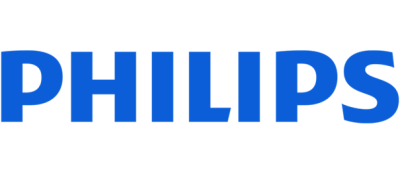PMS/PFC
Royal Philips is a leading health technology company focused on improving people’s health and well-being through meaningful innovation. Philips’ patient- and people-centric innovation leverages advanced technology and deep clinical and consumer insights to deliver personal health solutions for consumers and professional health solutions for healthcare providers and their patients in the hospital and the home. Headquartered in the Netherlands, the company is a leader in diagnostic imaging, ultrasound, image-guided therapy, monitoring and enterprise informatics, as well as in personal health. Philips generated 2024 sales of EUR 18 billion and employs approximately 67,800 employees with sales and services in more than 100 countries.
At Philips, our purpose is to improve people’s health and well-being through meaningful innovation. Philips has a heritage of ground-breaking innovation that stretches back almost 130 years. In 2024, Philips invested 9.6% of sales in Research and Development. Royal Philips’ IP portfolio currently consists of 50,500 patent rights, 30,500 trademarks, 150,000 design rights and 3,200 domain names. Philips filed 700 new patents in 2024, with a strong focus on the growth areas in health technology services and solutions.
Within Philips, the Image Guided Therapy (IGT) business group provides solutions for visual guidance during minimally invasive therapies. We offer one of the broadest ranges of interventional solutions in the industry, helping clinicians treat patients more effectively and efficiently. With our integrated image-guided therapy solutions (systems, software, and devices) for minimally invasive therapy, Philips is bringing tremendous change to the way care is being delivered to patients.
Role in the project
As the project coordinator and lead beneficiary of Work Package 6 (COORDINATE), Philips is responsible for the overall coordination and management of SHERPA. Philips ensures that the project progresses in line with its objectives, facilitating smooth collaboration across all work packages, aligning with the IHI office, and identifying opportunities for synergy with other related initiatives. Through its Image Guided Therapy business, Philips brings both technical and clinical expertise to SHERPA, focusing on automation in imaging functionalities and treatment delivery for neurovascular and oncological interventions.
Team
Robert Hofsink

Robert Hofsink MSc has 26 years of experience as a System Designer and Project Manager within Philips. He currently holds a position as manager Public Private Partnerships in Philips Image Guided Therapy Systems Innovation. He has a background in electrical engineering and graduated on the design and implementation of neural networks for language modelling. His main technical expertise is in the specification and design of innovative X-ray imaging applications and technologies, including technical and pre-clinical validations. He has 10+ years of experience in the initiation, creation, execution and management of European Public Private Partnerships and is currently coordinating multiple Innovative Health Initiative (IHI) projects.
Danny Ruijters

Danny Ruijters is a part-time professor at the University of Technology Eindhoven (TU/e) on the topic of data driven value-based healthcare in image guided therapy, and works as a principal scientist at the innovation department of the Image Guided Therapy (IGT) business cluster of Philips Healthcare in Best, the Netherlands, where he leads the IGT procedure automation and robotics study.
He received his engineering degree at the University of Technology Aachen (RWTH), and performed his master thesis at ENST in Paris. Next to his work for Philips, he has performed a joint PhD thesis at the Katholieke Universiteit Leuven and the University of Technology Eindhoven (TU/e). His primary research interest areas are medical image processing, artificial intelligence, application of data techniques in interventional treatment, 3D visualization, image registration, fast algorithms and hardware acceleration.
Viktor Óriás

Viktor Óriás is a Senior Clinical Scientist at Philips Image Guided Therapy Systems, responsible for scientific and medical affairs activities related to the neuro-endovascular, percutaneous transcranial and hybrid neurosurgical applications. With a strong background in medical research and industry-led development in medical imaging, Viktor is dedicated to facilitating the development of innovative intraprocedural imaging solutions that improve patient outcomes and provide better care for more people suffering from diseases affecting the nervous system. Viktor collaborates closely with cross-functional teams to ensure the successful execution of activities in the SHERPA project that are related to the neurointerventional applications.
Guillaume Pizaine

Guillaume Pizaine graduated from Telecom SudParis as an engineer specialized in image processing. In 2012, he received his PhD in signal and image processing at Télécom ParisTech (France). Since then, he has been working as a Research Scientist and then a Senior ML Engineer for Philips (France) in the field of radiology and interventional radiology. His research interests include AI, machine learning and medical image processing, especially variational methods and real-time object detection, recognition and tracking.
Julisca Cesar

Julisca Cesar is a dedicated Senior Clinical Scientist specializing in Interventional Oncology within the Image Guided Therapy Systems division at Philips. In this role, she bridges scientific theory and clinical practice to develop innovative, minimally invasive cancer treatments. Her work involves close collaboration with medical professionals and engineers to enhance imaging technologies and planning & navigation software solutions, aiming to improve patient outcomes. Julisca holds a Research Master’s degree in epidemiology from Rijksuniversiteit Groningen, where she developed a strong foundation in medical research and healthcare innovation. Her professional journey includes an internship at the World Health Organization (WHO), where she contributed to public health initiatives. She began her tenure at Philips as an Associate Healthcare Consultant, later transitioning to roles that focus on clinical marketing and scientific research within image guided therapy. Actively engaged in the medical community, Julisca participates in educational symposia and collaborative projects to advance interventional oncology. She is passionate about driving innovation in image-guided therapies and translating research into clinical solutions that improve patient care.

